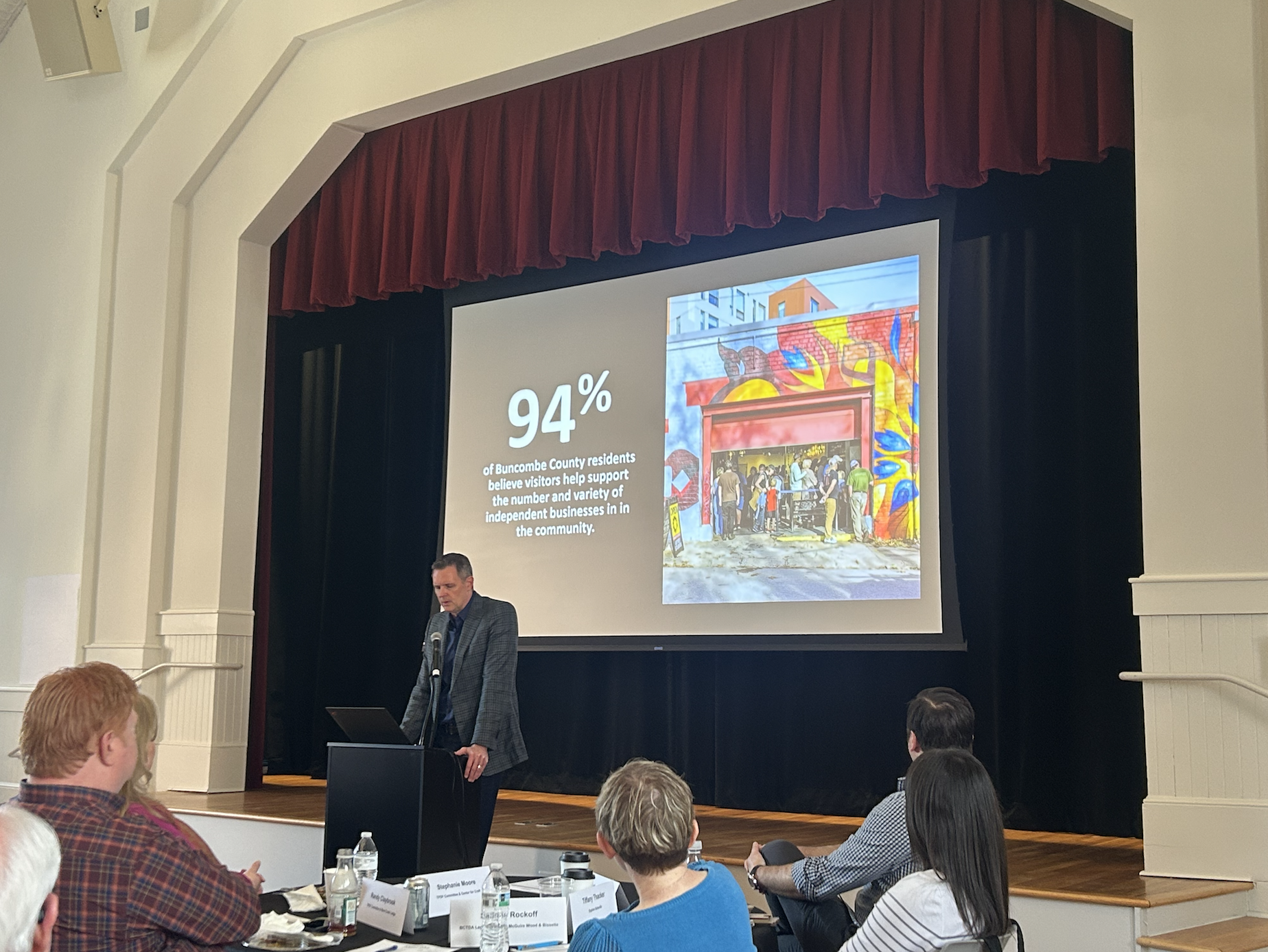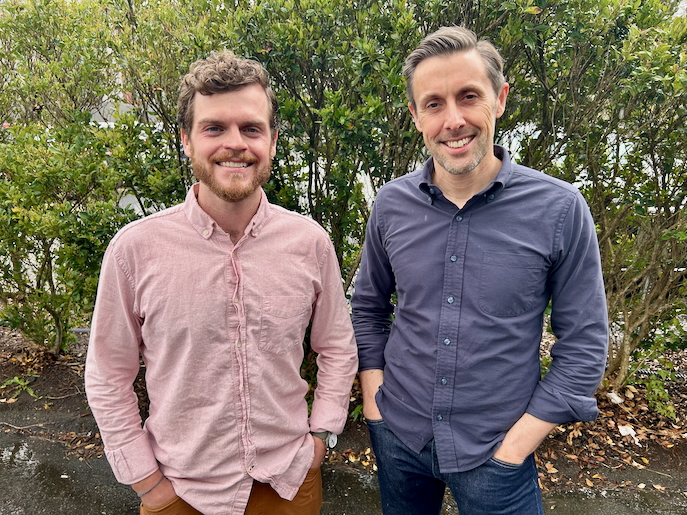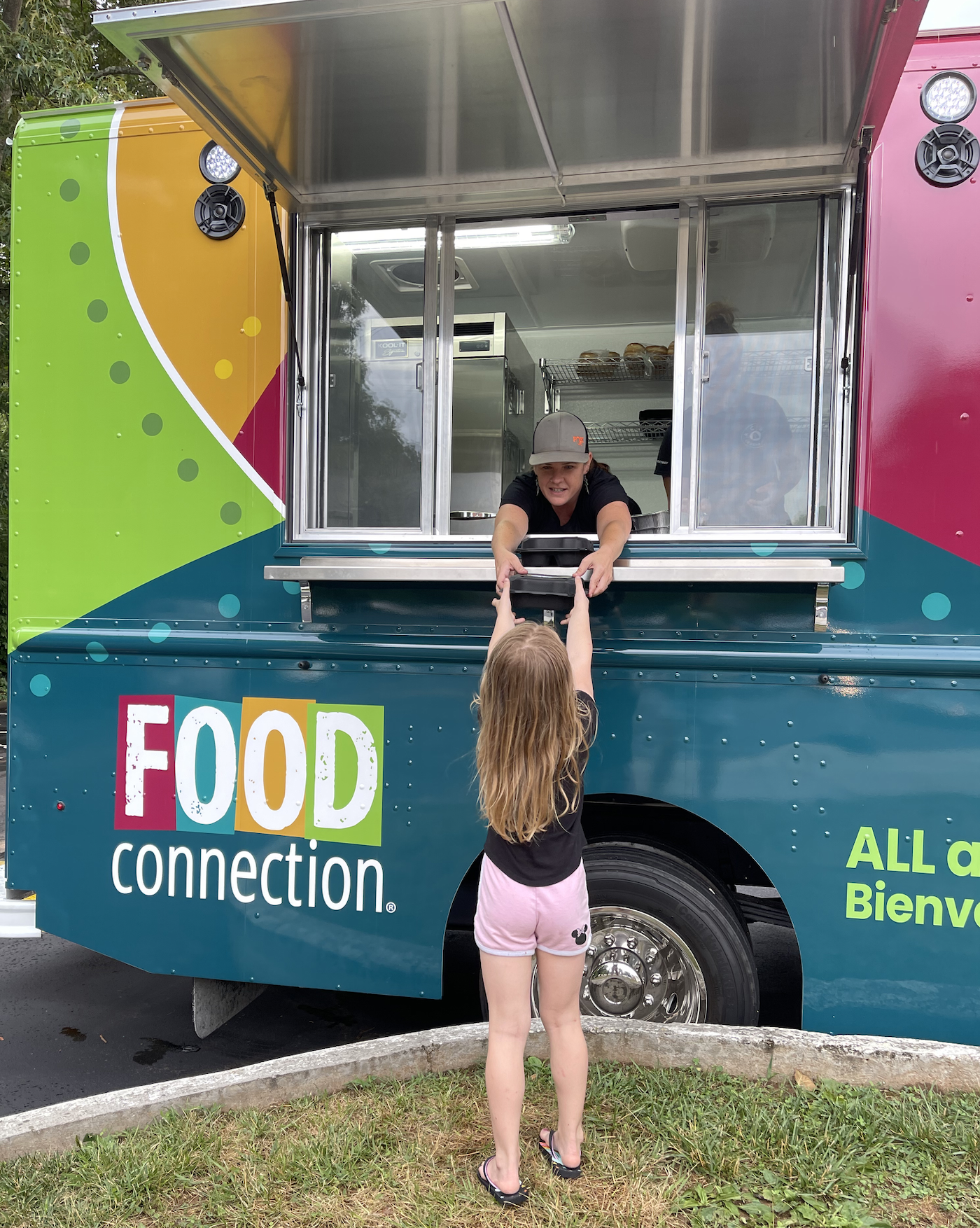by Emily O’Brien
As Asheville continues to recover from Tropical Storm Helene, the eighth annual DIY Tourism Marketing Conference highlighted the city’s evolving strategy for rebuilding and sustaining its tourism industry. Local leaders such as Dodie Stephens, vice president of marketing at Explore Asheville, emphasized the power of strategic marketing and positive storytelling.
“Beyond the economic benefits, events like DIY Tourism help tell our comeback story through positive word-of-mouth and amplification on the regional and national stage,” she said during a panel discussion.
Originally scheduled for November, the conference was postponed due to the effects of Helene, making this year’s March gathering an especially meaningful opportunity to reflect on the region’s path forward.
“Attendees who come to the Asheville area for a conference, concert or sporting event leave inspired and pleasantly surprised by our progress,” Stephens noted to the audience. “They go home excited to tell their friends that we are open and welcoming visitors.”
Research and trends
Held March 17-18 at the Renaissance Asheville Downtown Hotel, the DIY Tourism Marketing Conference drew professionals from across the country, some from as far as Hawaii.
Hosted by Learn Tourism, a nonprofit committed to shaping the future of tourism through education, the conference partnered with JB Media Institute to provide practical strategies for navigating tourism’s evolving landscape. Sessions covered digital marketing, content creation and the implementation of analytical tools.
The conference also fostered a collaborative learning environment where industry professionals could provide expertise on how they use common tools and technologies in unique ways. The goal was to exchange knowledge that drives growth and innovation.
One of the key discussions focused on the increasing complexity of digital marketing and technological advancements in tourism. Sarah Benoit, conference co-founder and lead instructor at Learn Tourism, highlighted challenges such as scattered digital efforts, rapid artificial intelligence (AI) and social media changes, and limited time for learning new technology.
In her keynote, Benoit explored strategies for transforming ideas into actionable plans, stressing that marketing is about relationships and listening to what people want and need.
Citing research by Google and consultancy Deloitte, Benoit noted that international travel is predicted to increase 60% by 2040. This set of tourists, she explained, are categorized as “emerging” — those drawn to familiar, well-established destinations — and “mature” travelers, who prefer off-the-beaten-path experiences. Regardless of their category, all travelers prioritize being well-informed and conduct thorough research before embarking on their trips, she added.
Another trend is the rise of experience-driven travelers — those seeking unique and immersive experiences who want a more personalized trip. According to reports, 66% of global travelers want authentic travel experiences.
More conferences to come
While the city has long been known for its arts, food scene and outdoor attractions, there is growing recognition of the economic benefits that business tourism brings. With investments in conference facilities and an emphasis on destination marketing, Asheville has positioned itself as an attractive option for professional events, which offer a steadier revenue stream compared with seasonal leisure tourism.
“Hospitality can be the front porch for economic development, and that is a community effort,” Stephens told Xpress at the event. “Local business leaders can play a role in bringing business events to their hometown. It is a huge win when area community leaders help bring a company meeting or their professional association here to Buncombe County. It can be as simple as an email connection with Explore Asheville’s business development team.”
Conferences and business events contribute significantly to the local economy by driving demand for hotels, restaurants, transportation services and entertainment venues.
In her keynote, Benoit explained, “Many [attendees] take the time to enjoy the food, beer, shopping, outdoor recreation, and health and wellness experiences we have available. Many of them arrive early on the weekend to have some extra time to explore downtown. We also attract local tourism and hospitality professionals, as well as small businesses to our event, who want to learn about marketing technology and discover the best way they can implement new strategies and tools.”
The DIY Tourism Marketing Conference, Benoit told Xpress, was intentionally scheduled for Monday and Tuesday sessions. “For the businesses that are open early in the week, we can generate some additional revenue that may not be there,” she said. “We confirm what businesses are available to welcome visitors on Monday and Tuesday and share that information with our attendees before they arrive. Our attendees are also more likely to stay in our hotels instead of alternative lodging, like Airbnbs, because they work in the tourism industry.”
According to Stephens, Asheville will host 120 business meetings, sports events and conferences over the next six months. “Those events will disburse $34.1 million in economic benefit through local business of all kinds,” she said.








